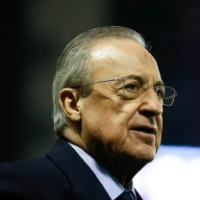
Florentino Pérez Rodríguez
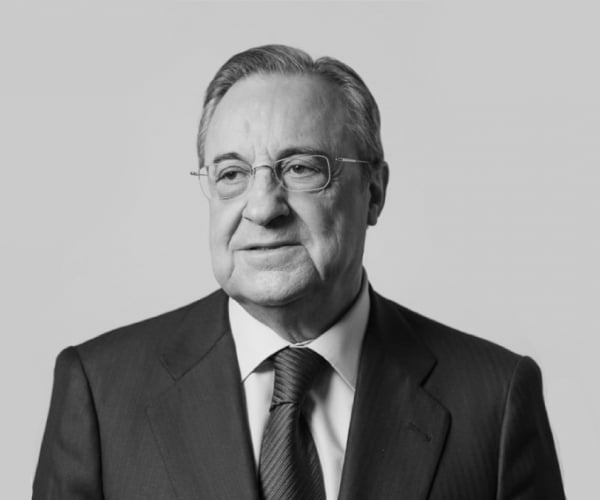
1947 Madrid
Florentino Pérez Rodríguez was born in Madrid on March 8, 1947. Known worldwide for his presidency of Real Madrid Club de Fútbol, his influence extends far beyond the playing fields. As a businessman, engineer and former politician, Florentino Pérez has made a significant mark in every sector. His ability to combine a strategic vision in both business and sports has made him a leader in several sectors.
Early years and education
Florentino was born into a middle-class family of businessmen. His father, Eduardo Pérez del Barrio, was the owner of Shangai perfumeries and president of the company Coperlim. Florentino was the third of five siblings, with two older sisters and two younger brothers. From a young age, Florentino was known to be an outgoing and mischievous child, highly esteemed by his environment. Although he did not stand out as a brilliant student, he never failed and was characterized by his effort and responsibility, values instilled by his parents.
For his early education, Florentino attended the Escuelas Pías in Madrid, where he studied until he entered university. In this school he made his first communion and spent most of his childhood and adolescence, until he was 17 years old. Although he initially entered a film school, he finally decided to study Civil Engineering at the Polytechnic University of Madrid, a discipline that combines technical precision with large-scale planning, which would lay the foundations for his successful career in business and sports.
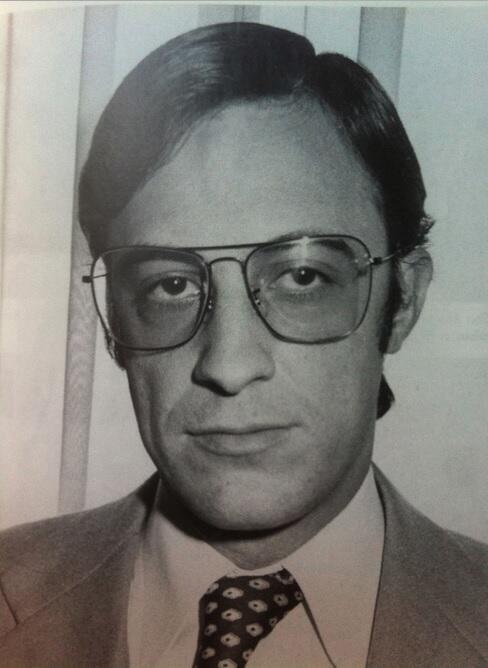
This training not only provided him with a solid foundation in technical knowledge, but also shaped his approach to problem solving and complex project management. The rigor and analysis that characterize this branch of engineering are reflected in the way Florentino Pérez approaches his challenges in business and sport. His engineering education was crucial in developing key skills such as strategic vision, long-term planning and efficient resource management, all of which were essential in his later roles as a businessman and president of Real Madrid.
His political career
Florentino Pérez began his political career in 1976, entering the public arena through the Unión de Centro Democrático (UCD), a key party in Spain's transition to democracy. During his time in politics, which lasted until approximately 1983, he held several important positions that allowed him to have a significant impact in different areas.
Among his most prominent roles, he served as delegate of Sanitation and Environment in the Madrid City Council. This position gave him the opportunity to work on projects focused on improving the quality of life of the people of Madrid through waste management and the promotion of sustainable environmental practices. In addition, he was deputy director general for promotion at the CDTI (Center for Industrial Technological Development) in the Ministry of Industry and Energy, where he contributed to the development and promotion of technological innovation in the country.
Florentino also assumed the position of general director of Transport Infrastructure at the Ministry of Transport, focusing on the planning and execution of key projects for the improvement of transport infrastructure, which had a significant impact on the modernization and efficiency of transport in Spain. Finally, he held the presidency of the Institute for Agrarian Reform and Development (IRYDA) at the Ministry of Agriculture, where he played a crucial role in the promotion and development of agrarian and rural projects, contributing to the advancement of the sector in Spain.
His business career
In the business world, Florentino Pérez has had an equally important career. His first big step in this world was in 1983, when he became the top executive and main shareholder of Construcciones Padrós. This position marked the beginning of his rise in the construction sector and laid the foundations for his future career in large corporations.
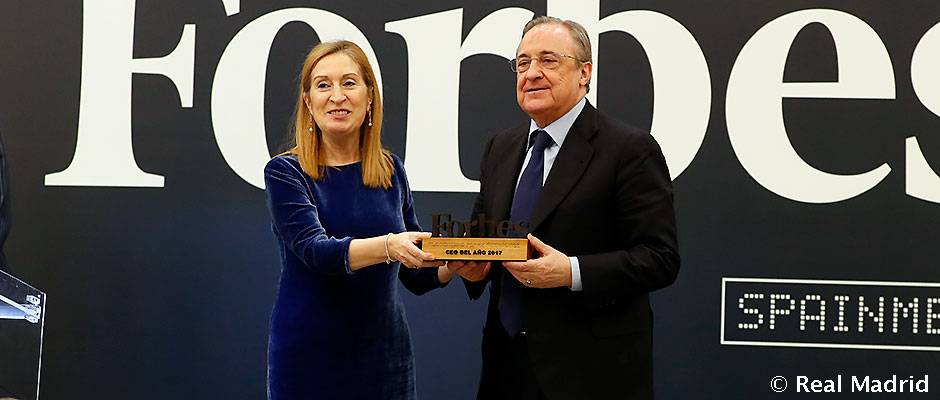
The high point of his business career came with his role in ACS (Actividades de Construcción y Servicios), one of the leading construction and services companies in Spain and the world. As Chairman and CEO of ACS, Florentino Pérez has led the company towards growth and international expansion, establishing it as a leader in its field. His leadership and business vision at ACS have not only driven the company's economic growth, but have also contributed significantly to the development of critical infrastructures at a global level.
In addition to her work at ACS, she also served on the board of directors of Société Auxiliaire d'Entreprises. His impact and success in the business world earned him the title of Best Businessman in 1999 by the magazine Actualidad Económica, in recognition of his outstanding work and professional career.
Presidency of Real Madrid: Two Eras of Transformation and Triumphs
In his role as president of Real Madrid, Florentino Pérez has been the key figure behind two of the four most significant eras in terms of European titles in the club's history, along with those of Santiago Bernabéu and Lorenzo Sanz. His leadership, combining bold transfer strategies with infrastructural innovations, has catapulted the club to unprecedented sporting success and institutional strength. Pérez has transcended traditional soccer management, focusing on long-term sustainability and adapting to the changing face of the sport. Under his tenure, Real Madrid has not only strengthened its historical legacy, but has also positioned itself as a leader in the future evolution of world soccer.
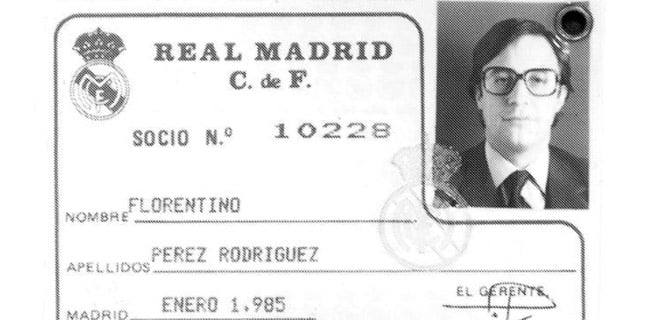
First Stage (2000-2006): The Galacticos Era
Florentino Pérez's journey to the presidency of Real Madrid Club de Fútbol, which began in 2000, was the fruit of a meticulous and calculated process that began five years earlier. In 1995, his first foray into the club's presidential elections ended in defeat to Ramón Mendoza, but this setback only fueled his determination and vision for the club's future.
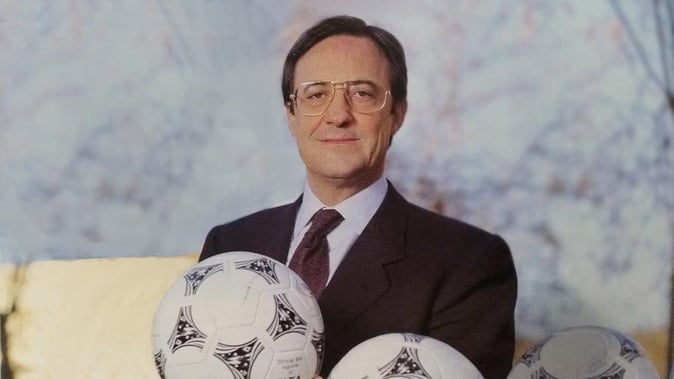
When Florentino Pérez ran again in 2000, he did so with a campaign that promised a revolution both on the pitch and in Real Madrid's brand identity. His boldest proposal, and one that would prove to be a dramatic turnaround in European soccer, was a commitment to sign Luis Figo, the Barcelona superstar, should he win the election. This promise was not merely symbolic; Perez had secured a deal with Figo that would be activated if he won, a strategic move that shook the foundations of Spanish and international soccer.
With Figo's arrival, the door was opened for a series of stellar signings. During his tenure, Real Madrid welcomed the likes of Zinedine Zidane, David Beckham and Ronaldo Nazario. These additions not only boosted the team's sporting competitiveness, but also boosted the Real Madrid brand on a global scale, raising broadcast and marketing rights revenues to unprecedented levels.
This strategy, known as the "era of the Galacticos," marked an evolution in sports and commercial management. Under Pérez's presidency, Real Madrid won two Spanish League titles (2000-2001 and 2002-2003) and the UEFA Champions League in 2002, consolidating its position as one of the world's leading soccer clubs. The club also won a European Super Cup and an Intercontinental Cup, reaffirming its dominance in international competitions.
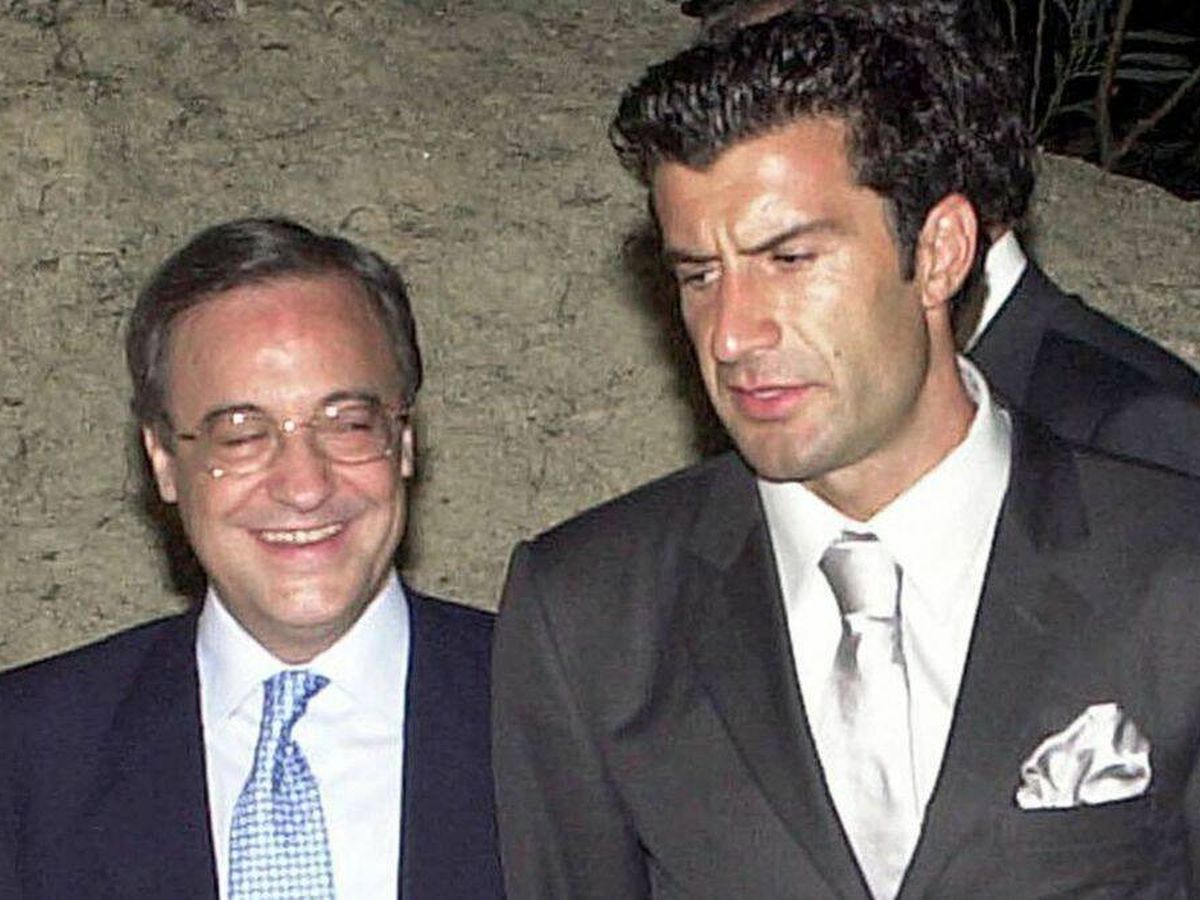
Despite this sporting and commercial success, Florentino Pérez decided to step down in 2006, leaving behind a legacy of triumphs and a new perspective on soccer club management. His ability to fuse on-field talent with a penetrating commercial strategy was key in creating one of the most glorious and memorable eras in Real Madrid's history, redefining modern soccer in both sporting and business terms.
Ramón Calderón replaced him as president of Real Madrid CF.
Second Stage (since 2009): Consolidation and European Dominance
After a three-year hiatus, Florentino Pérez returned to the presidency of Real Madrid in June 2009, marking the beginning of a second stage that would be defined by the club's consolidation as a global soccer power and its dominance in European competitions.
Perez's return brought with it a renewed strategy, focused on balancing the club's finances and building a competitive team both domestically and internationally. One of his first and most notable decisions was the signing of stars such as Cristiano Ronaldo, Kaká, Karim Benzema and Xabi Alonso, an investment that reflected his continued commitment to combining exceptional sporting talent with a strong brand presence.
Under Pérez's leadership, Real Madrid experienced an unprecedented period of success in the UEFA Champions League. Between 2014 and 2018, the club won four Champions League titles, including three consecutive titles, an achievement not seen since the days of Alfredo Di Stéfano's Real Madrid in the 1950s. This success in Europe was complemented by numerous domestic titles, including several Ligas and Copas del Rey.
In addition to sporting success, Pérez's management has been characterized by his ability to strengthen the Real Madrid brand and improve its financial health. The club has maintained a dominant position in terms of revenue and brand value, leading global rankings and setting new standards in sports marketing. This approach has enabled Real Madrid to attract and retain some of the best talent in the world, as well as to finance significant projects, such as the renovation of the Santiago Bernabeu Stadium.
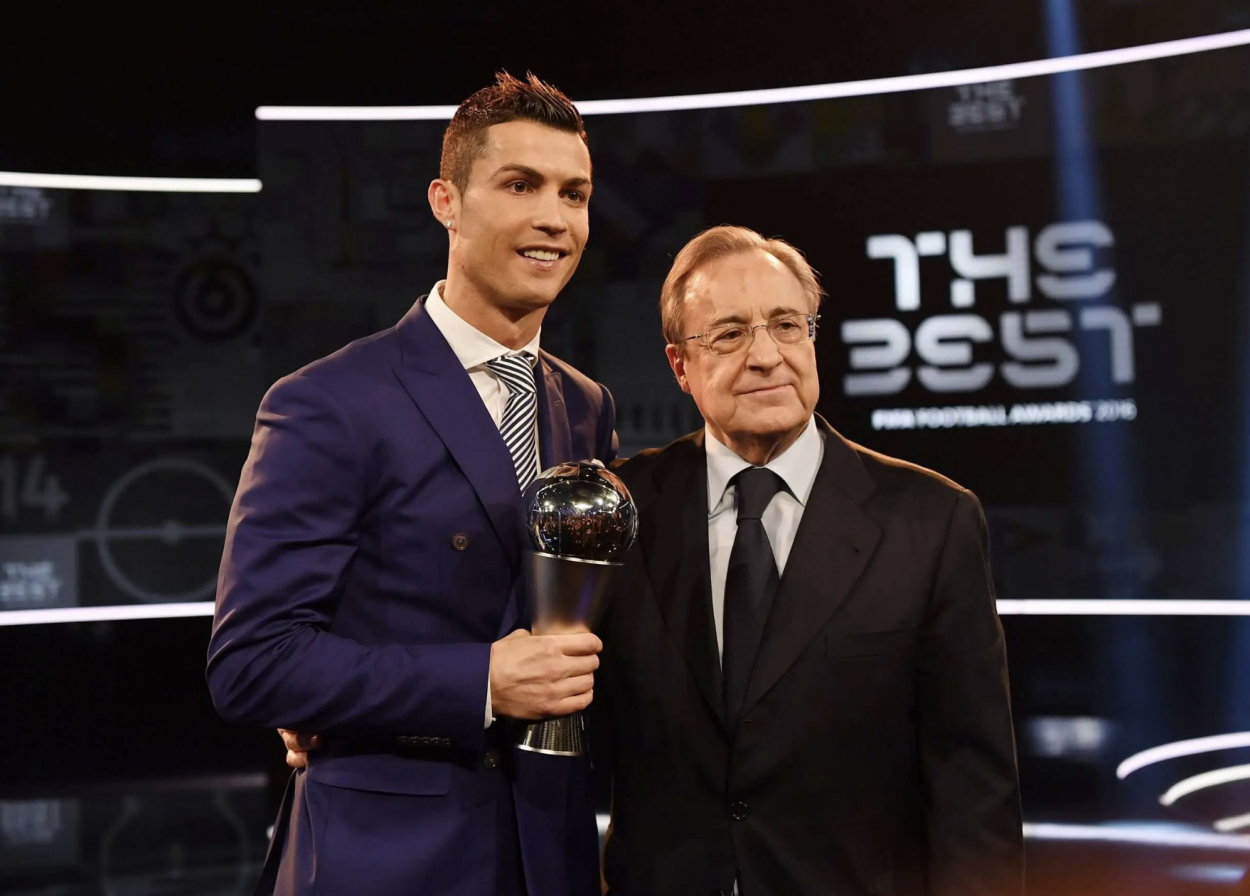
Florentino Pérez's vision for Real Madrid in this second stage has been more than just a quest for titles; it has been a comprehensive strategy to position the club as a leader in all aspects of modern soccer. From infrastructure to the training of young talent and the implementation of advanced technologies, his approach has been holistic, ensuring that Real Madrid not only dominates in the present, but is also well positioned for future success.
Florentino Pérez's second stint at the helm of the Merengue will be remembered for the recovery of the European hegemony that seemed to have been lost in the Spanish capital. With Florentino Pérez at the helm of the club, in 2014 Real Madrid managed to win the tenth European Cup in the club's history and, after that, the madridistas have lifted four more Champions League titles. Thus, Florentino Pérez has been proclaimed champion of the highest competition at continental level up to 6 times.
Florentino Pérez and Santiago Bernabéu, the only presidents to have won six Champions League titles in the history of soccer.
To date, Florentino Pérez's time as president of Real Madrid continues to be marked by success, innovation and constant adaptation to the changing landscape of world soccer. His leadership has been instrumental in keeping Real Madrid at the pinnacle of world soccer, cementing its legacy as one of the most successful and admired clubs in history.
This truly positive balance sheet places Florentino Perez's Real Madrid as the club with the highest current revenues for 10 consecutive years; in addition to being, currently, the most valuable club in the world according to Forbes.
